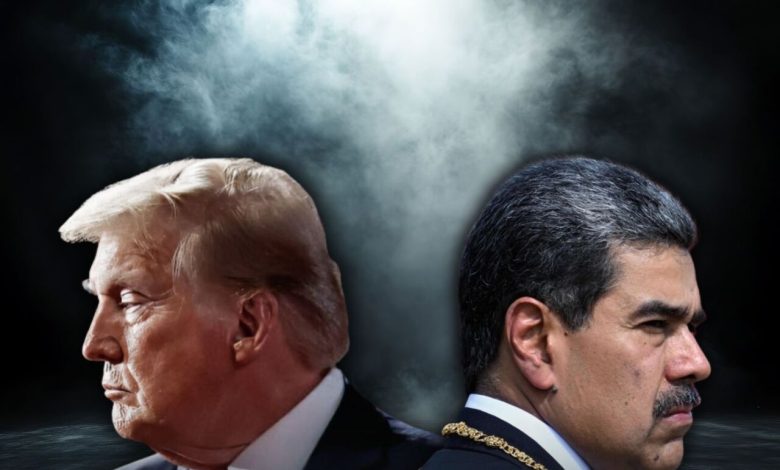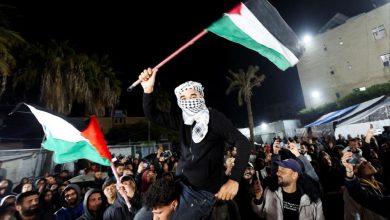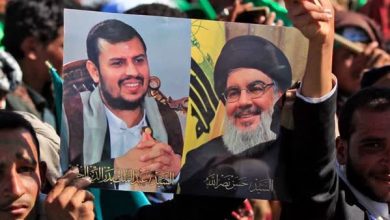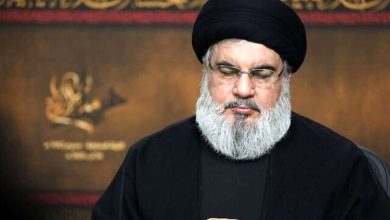U.S. Baseless Justifications: Steps Toward Military Escalation Against Venezuela

 Hawraa al Massri:
Hawraa al Massri:
Tensions in the Caribbean region are rising. Recently, U.S. Secretary of Defense Pete Hegseth announced military strikes against boats allegedly involved in drug trafficking, claiming that these operations are carried out under a legal authorization that protects U.S. national security. However, observers believe that these actions are merely a cover for a potential escalation targeting Venezuela, especially given the large U.S. military presence in the area, including eight warships, a nuclear submarine, and F-35 fighter jets in Puerto Rico. These maneuvers, which began in late August 2025, raise questions about Washington’s true intentions, particularly in light of its long-standing tensions with Caracas.
U.S. Military Escalation in the Caribbean: Details of the Maneuvers
The U.S. administration, under the leadership of the war-prone President Donald Trump, has launched an extensive military campaign against what it calls “drug trafficking groups” in the southern Caribbean Sea. So far, the United States has carried out at least four airstrikes since the beginning of September 2025, resulting in the deaths of at least 21 people, including four in the most recent strike announced by Hegseth on October 3, 2025. According to government data, these boats were carrying drugs and belonged to groups such as “Tren de Aragua,” which Washington has classified as “drug-terrorist organizations.” Hegseth emphasized that “these strikes will continue until attacks against the American people cease,” noting that U.S. intelligence had confirmed the involvement of these boats in drug trafficking without providing detailed public evidence.
These operations are taking place within the framework of a broad military deployment, with the United States sending over 4,500 troops to the region, along with advanced naval and aerial assets. According to reports, the stated purpose of this deployment is “combating drug trafficking,” but these measures go beyond the traditional efforts led by the U.S. Coast Guard, turning into a direct military operation that employs lethal force against suspected civilian targets.
In the 2025 fiscal year, the U.S. Coast Guard announced the seizure of approximately 175,000 pounds of cocaine in the region, bolstering U.S. claims. However, critics note that the current escalation exceeds the traditional boundaries of law enforcement operations.
U.S. Justifications: Between Claims of Armed Conflict and Legal Gaps
The U.S. administration relies on classifying cartels as “non-state armed groups” and describing their activities as “armed attacks” against the United States, which, according to them, permits the use of military force under the laws of war. The suspects are also classified as “unlawful combatants,” based on the President’s constitutional authority as the Commander-in-Chief. However, the term “drug terrorism” lacks any international recognition and does not justify exceptions to human rights or international humanitarian law.
Additionally, Heighesith claims that these strikes are preemptive to “send a deterrent message” to the cartels, but this approach violates the principle of the right to life, as the use of lethal force in peacetime is only permitted to save immediate lives, not as a deterrent. The absence of congressional authorization also raises domestic constitutional debate, as senators recently rejected a measure aimed at preventing these operations under the War Powers Act.
Legal Criticisms: International and Domestic Violations
These operations have faced sharp criticism at both international and domestic levels. Internationally, UN experts consider them “extrajudicial killings” that violate international maritime law and the laws of the sea. The absence of concrete evidence of drugs on the boats reinforces these allegations, as there is no independent verification mechanism. Moreover, the notion of an “armed conflict” with organized crime groups is legally rejected, since these groups are not considered parties to an armed conflict under the Geneva Conventions.
Domestically, the measures have sparked debate over constitutional legitimacy, especially since U.S. law does not authorize the death penalty for drug trafficking offenses without a fair trial. Members of Congress, both Democrats and Republicans, have criticized the lack of a clear judicial process and warned that it sets a dangerous precedent for the use of military force against civilians. Legal experts argue that these operations push the United States away from international consensus on the rules of international law.
International and Venezuelan Responses: Condemnation and Defensive Escalation
Venezuela condemned these operations as “illegal” and a pretext for “regime change,” calling for an emergency meeting of the UN Security Council to halt the U.S. “hostile actions.” Caracas described the U.S. military presence in the region as “unprecedented,” accusing Washington of using the war on drugs as a cover to control Venezuela’s oil, gas, and gold reserves. Venezuela also conducted extensive defensive exercises, including civil and military drills under the name “Sovereign Caribbean,” involving artillery, drones, and submarines, in response to U.S. strikes.
Internationally, UN human rights experts condemned the strikes as illegal, and Secretary-General António Guterres called for the rejection of U.S. military threats in the region. Venezuela’s regional allies, such as Caribbean nations, viewed the operations as an attempt to destabilize the region, while reports warned that the U.S. might be considering strikes within Venezuelan territory itself.
Conclusion: A Dangerous Precedent and a Prelude to Greater Escalation
Ultimately, U.S. justifications appear legally weak, relying on “national security protection” without solid evidence. Experts argue that these operations establish a dangerous precedent for the use of military force outside legal frameworks and may be a step toward direct intervention in Venezuela, especially given historical tensions over its natural resources. This escalation reflects the Trump administration’s strategy of using propaganda to justify broader political objectives, threatening regional peace and necessitating international intervention to ensure respect for international law.







